With the birth of a baby, a mother has a lot of reasons to worry. Among the most common are colic, poor sleep, and unsettled feeding patterns for the baby. To this may also be added the problem of dry skin in the baby. Here, experts advise not to panic, but to arm yourself with useful knowledge that will help provide proper care.
- Features of newborn skin
- Causes of dry skin in babies
- Rules of care
- What to do if your baby has dry skin
- Consequences of dry skin in a newborn and errors in care
- Importance of Nutrition
- Prevention measures
- Tools Overview
Features of newborn skin
The skin of a newborn is different from that of an adult. She loses heat much faster, because the ratio of the baby’s body surface to his weight is several times greater than that of an adult.
“Newborns have a very thin epidermis,” says Alexander Prokofiev, dermatovenerologist, medical expert for the La Roche-Posay brand. “That’s why a baby’s skin is very delicate and easily wounded. Until a certain age, it has an insufficiently acidic pH (due to low sebum production), so it is more susceptible to various microbes. In addition, it contains significantly less of the protective pigment melanin.”
In newborns, the density of sweat glands is higher due to the smaller skin surface compared to adults. But by the time of birth, these glands are not mature and cannot cope with the mission assigned to them - sweating. Therefore, when the ambient temperature rises, the baby's skin is prone to overheating.
Causes of dry skin in babies
According to Alexander Prokofiev, “the main reason for a baby’s dry skin is the insufficient functioning of its sebaceous and sweat glands. In the womb, these glands remain dormant and begin to activate only after birth. Gradually, this physiological state of skin vulnerability disappears.”
The skin of newborns is very delicate, thin and easily vulnerable © iStock
There are several other factors to blame for dry skin in babies.
The air is too dry
In dry and warm air, the load on the child’s unformed thermoregulation increases. This is why it is so important to use humidifiers.
Overwrapping yourself, swimming in too warm water, and hot weather all cause dry skin.
Washing powders, disinfectants, chlorinated water, and poor-quality care products can negatively affect the condition of children’s skin.
From the first months of life, teach your child to drink water, not juice, compote or tea.
Rules of care
Caring for a baby requires parents to take great responsibility and adhere to the rules of hygiene.
Mom should have neat, short-cut nails and clean, well-groomed hands. Otherwise, there is a risk of injuring the baby’s delicate skin and causing infection.
Twice a day, the baby needs to treat the umbilical wound until it is completely healed.
Keep your baby's skin clean and change the diaper every 3 hours or immediately after a bowel movement.
Bathe your baby daily. If the quality of tap water leaves much to be desired, then use boiled water with a temperature no higher than 37 degrees Celsius (and no lower than 34).
What to do if your baby has dry skin
Here the recommendations depend on the location of the dry areas of the skin.
Wash your newborn with a cotton pad soaked in boiled water © iStock
In the parietal region of newborns, dry flaky crusts - gneiss - often form. Half an hour before bathing your child, lubricate them with warm Vaseline or vegetable oil, and while washing, carefully rinse them from the scalp. If you don’t manage to cleanse your scalp the first time, it’s okay. Repeat skin treatment during subsequent baths. The main thing is not to pick the skin or tear off the crusts, so as not to cause additional skin irritation.
The problem of dryness can arise due to frequent contact with water (especially hard water), dry indoor air, hot and windy weather. Wipe the newborn's face 2 times a day with cotton pads soaked in boiled water. Don't forget to clean the folds behind your ears too. Then apply moisturizer.
Dryness can occur due to contact with clothing that contains detergent particles or aggressive dyes. After the umbilical wound has healed, use special moisturizing oils or chamomile decoction for bathing. Dry your baby's skin without rubbing it, but by gently patting it with a soft towel. Then apply baby moisturizer.
The delicate skin of a baby is very thin, easily injured, and due to some of its features it dries quickly. Dry skin not only causes discomfort, but causes serious dermatological problems. If treatment is not started in time, wounds and ulcers, eczema may appear, and if a fungal infection occurs, thrush may develop. It is important to find the cause of dryness and eliminate it. Without this, even the most correct treatment and care will not help. If you cannot find out the cause on your own, it is better to consult a pediatrician or pediatric dermatologist.
Content:
- Causes of dry skin
- Environmental response
- Reaction to care products
- Lack of care
- Dehydration
- Diseases that cause dry skin

Causes of dry skin
In most cases, the cause of dryness is the physiology of newborns. In the womb, the baby is covered with smegma, or vernix, which performs a protective function. After the baby is born, it is gradually washed away, and the baby’s skin cannot yet sufficiently perform the functions assigned to it. In addition, her immunity is poorly developed, and any impact, external or internal, immediately affects the condition of the skin.
The sebaceous and sweat glands of a newborn are also not yet developed; thermoregulation is established only by the end of the first year of life. Any overheating is fraught with profuse sweating, which protects against overheating.
All these features lead to the fact that the baby’s skin reacts to any adversity with a rash, redness, and begins to dry and peel.
Other reasons why a child develops dry skin are related to the conditions surrounding him, the general condition of the body, and the characteristics of care.
Environmental response
These may be unfavorable weather conditions: wind, frost, exposure to the open sun for a long time. When going outside, it is advisable to take care of protecting exposed skin. So, in the summer, apply sunscreen, in the winter, lubricate your face with a cream that protects from low temperatures.
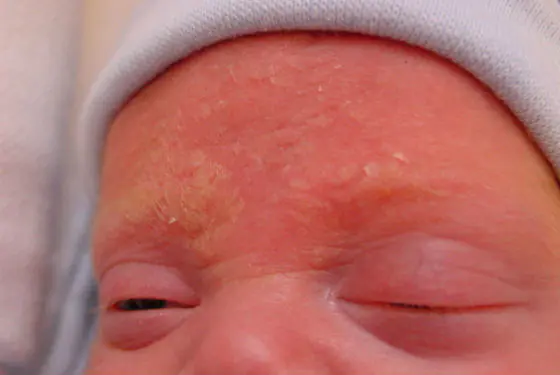
Things to remember: During the cold season, protective agents should be applied in advance, at least half an hour before going outside.
This also includes too dry air in the nursery, which is the most common problem in winter, during the heating season. The optimal humidity is 55-70%, which is achieved with special electric humidifiers or wet towels hung on heating radiators. You can also place a small container of water near the crib, periodically spray water from a spray bottle, and ventilate the room more often.
Reaction to care products
We are talking not only about soap, shampoo, foam, but also about various additives that parents use when bathing their baby. Not so long ago, doctors advised adding a weak solution of manganese to water. This is what causes dry skin.
Modern pediatricians advise bathing a child, if he does not have serious skin problems, in ordinary tap water after the umbilical wound has completely healed. If mom is worried about its quality, then you can use boiled or filtered water. Hygienic products are used no more than once a week or when heavily soiled.
You should also pay attention to what powder is used when washing children's clothes. Special baby powders and mouthwashes are not a clever marketing ploy. Most of them undergo strict control and do not contain fragrances or other components that can cause allergies in the form of peeling, irritation and redness of the skin. Therefore, in the first year of a child’s life, it is advisable to wash his clothes and bedding separately, using products from the children’s line.

Lack of care
The skin of a newborn needs constant care. Hygienic procedures in the form of rubbing and washing must be carried out in the morning; it is advisable to bathe the baby every evening before the last feeding. Wash the baby every time you change the diaper and after bowel movements. Here it is enough to use warm running water.
At the same time, feces contain enzymes that, if left untreated, can cause severe irritation, which often results in diaper dermatitis and other serious skin diseases.
Dehydration
Organizing the drinking regime correctly is important from the first stages of a baby’s life. If a newborn is breastfed, mother's milk is usually enough to fill you up and quench your thirst. It is still worth offering your child clean water, especially in hot weather or in stuffy rooms, but if he refuses, do not insist.
Children who are bottle-fed or mixed-fed must be given water. How to establish a drinking regime, how much liquid a child should drink - it is better to clarify these questions with your pediatrician.
Dehydration also appears with high fever, increased sweating, vomiting and diarrhea. Doctors advise not to self-medicate. In all these conditions, the child loses fluid, so dehydration, which is especially dangerous for children in the first year of life, develops quickly.
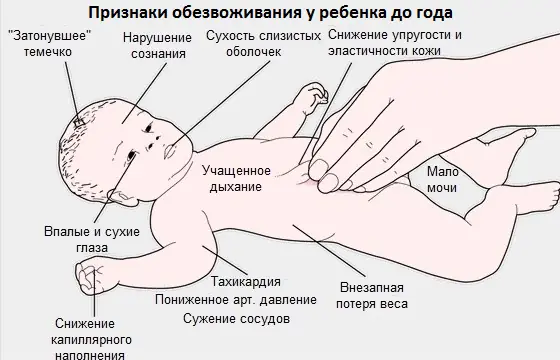
Important: It is easy to detect dehydration in a newborn. The tongue and lips become dry, the skin becomes tense and appears transparent, and the fontanel sinks. In this condition, you should consult your doctor. If symptoms are noticed in the evening, you should not wait until the morning; it is better to immediately call an ambulance.
Diseases that cause dry skin
In addition to reasons related to errors in care, dry skin can be due to the presence of certain diseases:
- improper functioning and intestinal pathologies;
- atopic or diaper dermatitis at the initial stage;
- avitaminosis;
- Ichthyosis is a disorder of the process of keratinization of the skin.
If any of the conditions are detected, you should consult a doctor. Starting treatment without consulting a pediatrician is dangerous: a newborn’s body can react negatively even to the most seemingly harmless drugs.
Treatment
If dry skin is not associated with diseases, and the cause of this condition has been identified and eliminated, then it is quite possible to carry out treatment at home. The main thing here is to choose the right care product.
Therapeutic and caring ointments and creams
According to many mothers, the best in the fight against almost any dermatological problems are creams and ointments with dexpanthenol: panthenol, bepanthen. Dexpanthenol ointment contains preservatives and cheaper fatty components. In the composition, for example, “Bepanten” contains almond oil as one of them, and “Bepanten Plus” contains the antiseptic chlorhexidine.
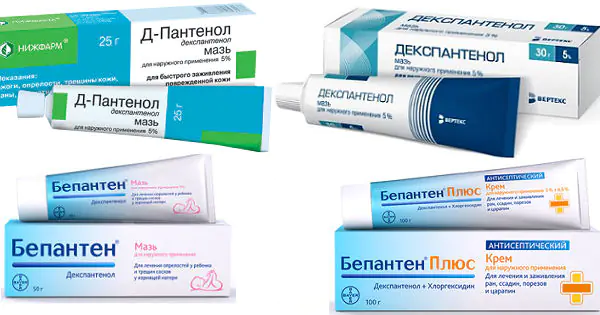
All of them perfectly soften, moisturize and heal the skin, and cope even with advanced forms of dermatitis. They are practically identical in composition and action, but differ significantly in cost. The cheapest of them is “Dexpanthenol” (up to 100 rubles per tube), “Bepanten” is the most expensive (from 400 rubles).
Now on the shelves of stores and pharmacies you can find many baby creams that contain dexpanthenol, additional vitamin E, and herbal extracts.
Things to remember: It is better to buy medications and care products in pharmacies to avoid purchasing low-quality products or counterfeits.
Bepantol Baby from Bayer – a new protective cream for diapers, but can also be used to lubricate dry areas of skin. The composition contains provitamin B5, vitamin B3, shea butter, jojoba, olive, niacinamide, vitamin E, phospholipids, lanolin. It has excellent wound healing properties and protects against dryness. The hypoallergenic composition without fragrances and dyes makes it possible to use it in children from birth. The average cost is 800-900 rubles.
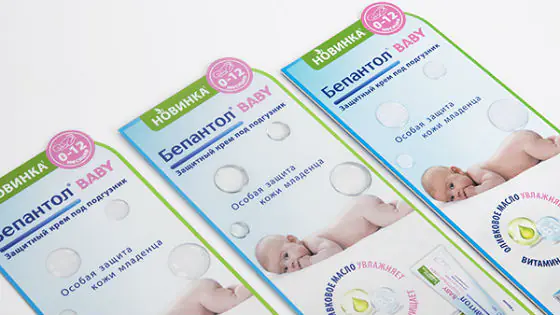
Sudocrem contains zinc oxide, paraffin and lanolin, it softens, soothes and restores the skin. It has a slight anesthetic effect, relieves discomfort and pain. The average cost of the cream is 500 rubles.
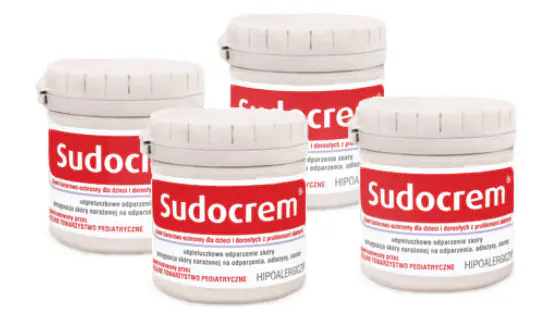
Line of Bubchen creams. The main components are zinc oxide and panthenol. Heal and soothe the skin, relieve itching, flaking, and redness. The price for one tube is about 300 rubles.
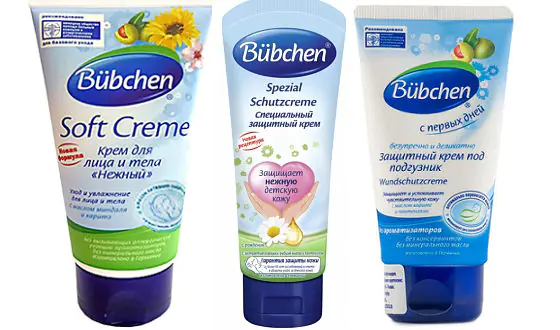
Little Siberica produced in Russia includes extracts of medicinal herbs (yarrow, marshmallow, Rhodiola rosea and others), beeswax, oils (sunflower, shea, pine nut), vitamin E, glycerin. Eliminates diaper rash and irritation, softens, moisturizes and nourishes the skin, has antiseptic properties. It has a “COSMOS-Standard organic” certificate - an absolutely harmless product. Cost from 250 rubles.
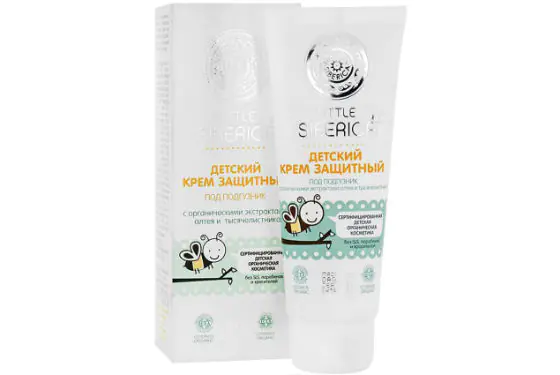
"Umka" - soothing and moisturizing cream from Russian manufacturers. Contains ectoine, panthenol, olive oil, chamomile extract. Has good healing and restorative properties. Price – 90 rubles.

Baby and cosmetic oils
Many mothers notice improvements after using baby or any cosmetic oil. You should choose non-comedogenic, easily absorbed oils, for example, peach, apricot, almond. Cosmetic oils do not need to be heated over a fire; just moisten a cotton pad and apply the product to a dry area of skin.
The disadvantage is that the oils take a long time to absorb and leave greasy marks on the laundry. Before dressing the baby, it is advisable to blot the body with a soft napkin so that a greasy film does not remain on the surface and the skin can breathe freely.
Folk remedies
When adding herbal decoctions to baths and using them when washing and drying the baby, you should remember that many of them have a pronounced drying effect, which, if dry, will only aggravate the situation. This is everyone's favorite chamomile, string, calendula, oak bark.
Oat decoction has very good softening and restorative properties. To prepare it, 1-2 tbsp. l. pour a glass of boiling water over the unrefined grain, cook over low heat for 10-15 minutes and let it brew for half a day. The finished broth is filtered and added to the bath before bathing. You can make lotions by moistening gauze folded in several layers and applying it to dry areas of the skin.
Potato lotions
Grate a small potato on a fine grater, collect the pulp in gauze, wrap it and apply to the affected area for a few minutes. Potatoes relieve inflammation, soothe and moisturize the skin.
Ointment made from honey and Kalanchoe juice
Mix natural bee honey and squeezed Kalanchoe juice in equal parts, leave in the refrigerator for 7 days. Apply a thin layer to dry skin.
Video: What to do with dry skin of a baby in the first month of life
How to avoid dry skin
Prevention plays an important role, because it is much easier to prevent such manifestations than to treat subsequent infections later:
- The baby's skin should be moisturized with selected creams or ointments. Many parents massage their newborn using oil or a special baby product. There are enough of them; additional processing is often not required.
- The humidity in the nursery should not be below 55%. It is advisable to carry out wet cleaning every day, since dust is also a common cause of allergies, causing dryness and tightness of the skin.
- Everything that the child’s skin comes into contact with must be made from natural fabrics, since even a small percentage of synthetics can provoke unwanted skin reactions.
- Monitor the baby’s condition, promptly treat diseases, and prevent dehydration and other complications.
A nursing mother should adjust her diet; if dry skin appears in a bottle-fed baby, a different formula is selected together with the pediatrician.
Video: How to properly care for the skin of a newborn
Dry baby skin and flaking are one of the most common problems that young parents face in the first year of their baby’s life. Moreover, almost every child goes through this condition, but for some it is the result of improper care, which is easy to correct and return the baby’s delicate velvety skin, for others it is a sign of the development of a disease that requires treatment. Therefore, it is important to immediately understand the cause of dry skin and relieve the child of discomfort.
Features of the structure of children's skin
The structure and delicate surface of the skin of babies after birth is due to the fact that while the baby was in the womb, it was completely covered with a special viscous grayish substance. This is an original lubricant that protected the skin and facilitated the movement of the fetus along the birth canal.
In the first minutes after birth, the baby is always covered with a not very pleasant substance, but within 2 days it completely disappears. The vernix lubrication lingers longest in the folds, behind the ear and other hard-to-reach places. For the first two days, you should not touch the remains, since such a lubricant allows the baby to more easily adapt to the environment and prevents dryness. If traces remain by the third day, they are carefully removed using vegetable oil slightly heated in a steam bath.

Babies have very delicate skin
Skin is an indicator of health
The skin of a baby, like an adult, reflects the state of health. After all, it is she who protects a person from environmental influences, removes unnecessary harmful substances from the body, and is responsible for heat exchange, the production of melanin and vitamin D.
Important! The condition of the skin can determine problems in the body. It is the skin that will signal failures.
If babies develop dryness, scales, or peeling, you should immediately contact your pediatrician. This condition brings discomfort and pain to the baby. This may be a consequence of improper care or a sign of a serious dermatological disease. But even if dryness is a consequence of improper care, it is important to eliminate the problem as quickly as possible, since dry dermis can quickly become covered with cracks. Even if they are invisible, germs and bacteria get inside through them. They cause disease.
Causes of dry skin
For various reasons, dry skin may occur in a newborn.
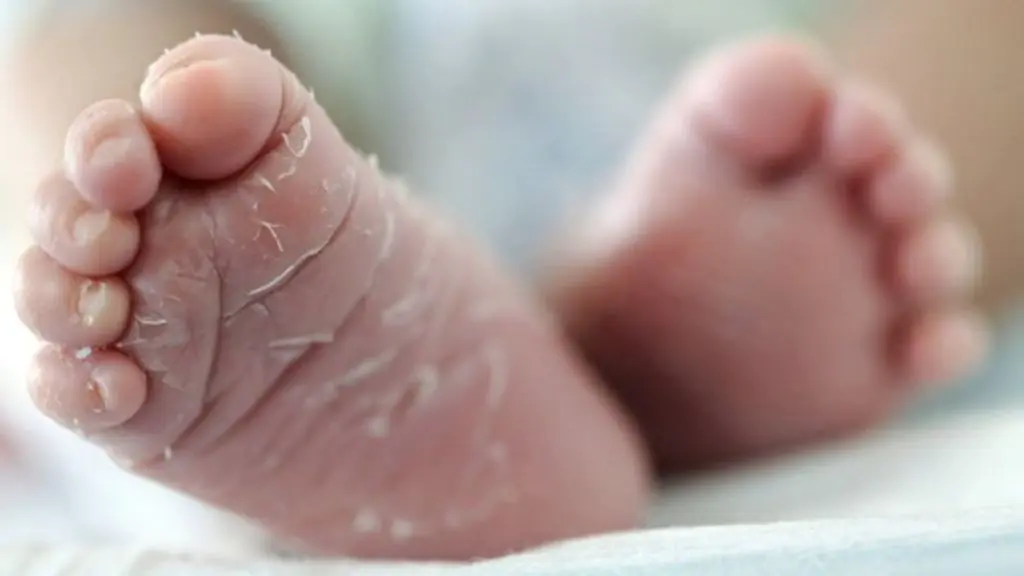
Dry skin in a newborn
Here are the most common ones:
- Adaptation. After a baby stays in his mother’s tummy, it is very difficult for him to adapt to the world around him. All systems of the body need to adapt to these conditions.
- Dry air. If the air in the room where the baby is growing is constantly dry, it is not surprising that dry skin is observed.
- Incorrect care. Parents should carefully monitor the baby’s condition every day, bathe the child regularly, and use soap or baby shampoo no more than once a week.
- Reaction to natural phenomena. The skin of a child, like an adult, tends to react to the wind or sun. Therefore, during walks, it is better to hide the baby behind the visor of the stroller.
How to quickly help your child
If the mother notices the first signs of dry skin, there is no need to waste time and start helping the baby. There are a few simple steps you can take to help.
Hydration
The very first step will be wet cleaning of the room. This procedure is especially important if the baby is already crawling or walking. Regular washing of home floors, cleaning carpets, and dusting significantly moisten the air in the room. To prevent the skin from drying out, the room temperature should be +22-24 degrees with an air humidity of 60-70%. You can buy special air humidifiers. An aquarium with fish will cope well with this task; later the child will be able to take care of them.

Bathing
A huge number of parents are wary of frequent bathing of their infants. In fact, this is a great way to improve the condition of your baby's skin, which is able to absorb moisture directly during the procedure. To enhance hydration, you can add infusions of nettle, burdock or yarrow roots to the water.
Important! During the period of using decoctions, you should avoid using a solution of potassium permanganate.
The role of nutrition
An unhealthy diet can cause dryness. Likewise, a proper balanced diet can be used to combat the problem. To restore the condition of the skin, you should create a menu in such a way that the body receives the required amount of vitamins, fruits, milk and dairy products. It is important that the child is not allergic to the selected products.
If your baby is breastfed, you should reconsider your diet. Everything that can cause allergies is excluded from mother's diet.

Balanced nutrition for babies
Important! The baby needs to be given clean water every day. The norm per day for a baby is approximately 150 ml. There's no need to give anymore.
Rules for caring for a newborn
To avoid dry skin, you should properly monitor your baby from the very beginning.
If delicate, vulnerable skin is provided with proper care, then problems should not arise:
- Fingernails and toenails should be trimmed neatly and short.
- The baby's navel is treated twice a day until it is completely healed.
- Take special care of your baby's skin in the area of natural folds.
- Do not use children's cosmetics too often.
- Make sure that diaper rash does not form.
- Facial skin should be cared for using cotton pads moistened with water.
- Hair care isn't just about washing your hair. There are flaky crusts on the surface of the scalp. They cannot be combed. Before bathing, the surface of the skin is treated with warm castor or vegetable oil, then the crusts are removed with a soft sponge.

Newborn care
Prevention of diaper rash and dryness
One of the common skin problems for babies is diaper rash.
To prevent them, it is recommended:
- At each swaddling and changing of clothes, air baths should be taken; the duration of the first should not exceed 2 minutes. (time gradually increases);
- For a newborn, you should use underwear made from natural fabrics with the seams facing out;
- In hot weather, it is recommended to use powder regularly;
- The baby's skin should breathe as often as possible: leave it without a diaper, do not wrap the baby unnecessarily.
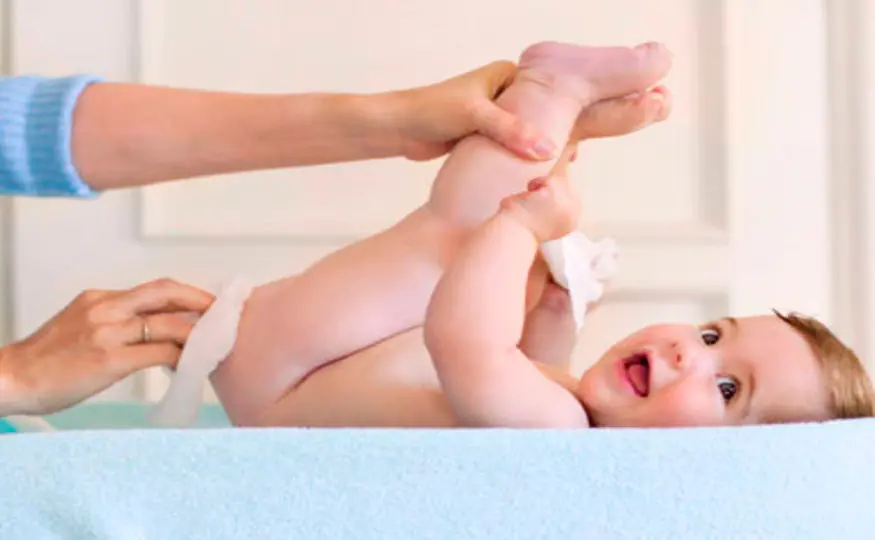
Prevention of diaper rash and dryness
Which cosmetics to choose
First of all, only high-quality products from trusted manufacturers should be used to care for your child. Children's cosmetics should not contain dyes, fragrances, or aggressive chemicals.
Important! It is recommended to purchase children's cosmetics in pharmacies. It costs relatively more, but treatment of dermatological diseases will cost even more.
When choosing the first cosmetics for a newborn, you should consider the following points:
- Baby soap should not contain fragrances or fragrances. When bathing, such products are used no more than once a week.
- Pediatricians recommend using water-based creams. Fatty formulations are used only for treating exposed areas of the body before a walk.
- Moisturizing creams and oils are used only for application to dry areas of the skin or when swimming in hard water.
- If you frequently apply cream to baby's folds, you can cause diaper rash.
For your information. If your baby has dry skin, you can use special baby oil to moisturize after each bath.
When a small child appears in the house, a great responsibility falls on the parents, because they have to adapt the new successor to living conditions. Every step or wrong action in care can negatively affect the child's condition. The presence of problems will immediately be signaled by the condition of the skin.



